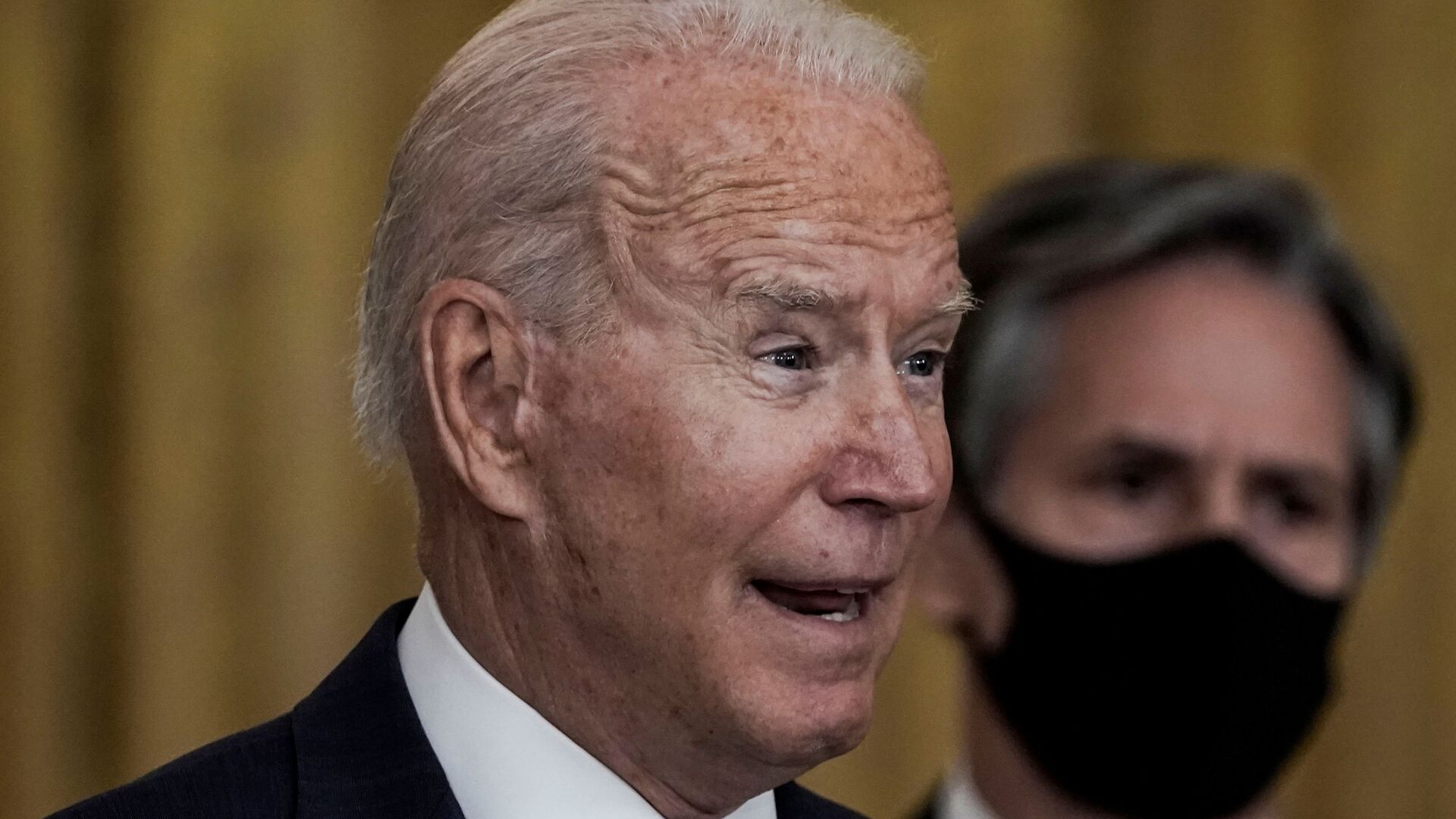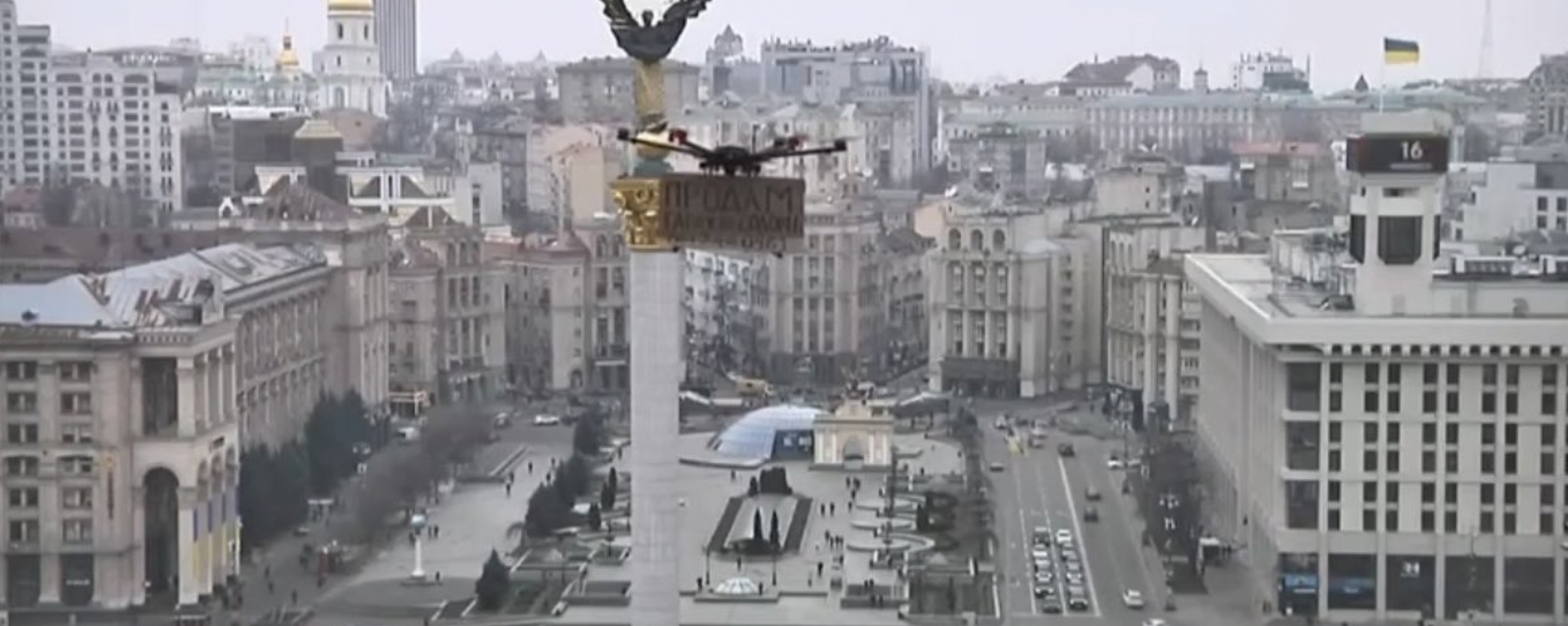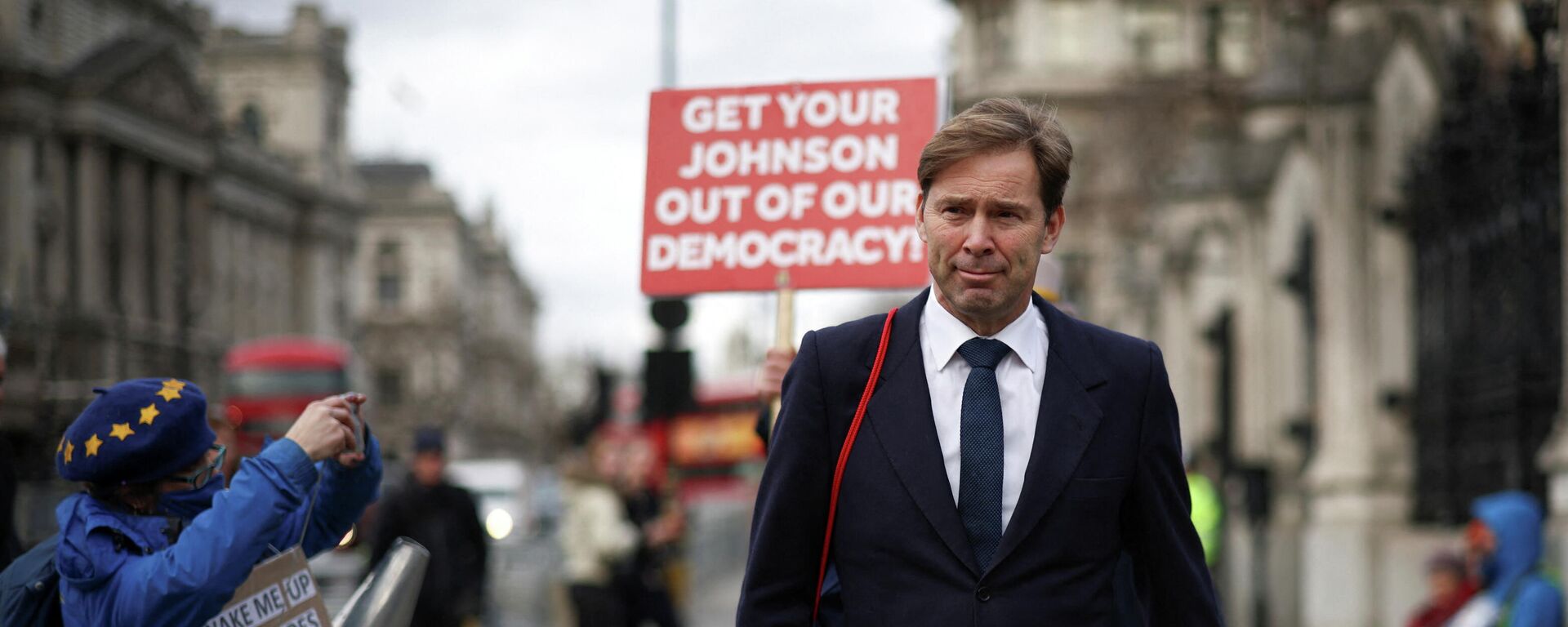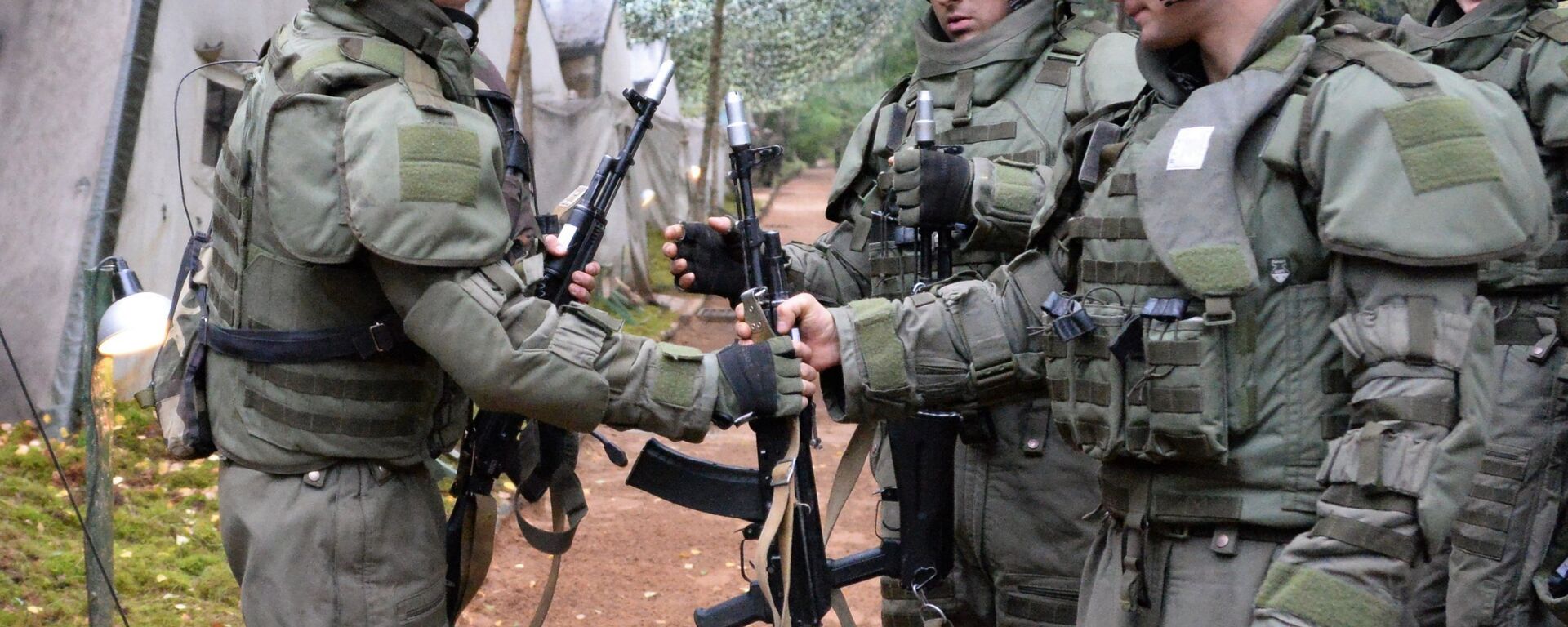The Invasion That Never Was: Biden, Blinken Claim Russia Could Attack Ukraine in Coming Days
14:24 GMT 17.02.2022 (Updated: 16:54 GMT 17.02.2022)

© REUTERS / KEN CEDENO
Subscribe
The claims come amid an escalation along the line of contact in Donbass as Ukrainian forces shelled several villages in the self-proclaimed Donetsk and Lugansk republics on Thursday.
US President Joe Biden has claimed that "there is every indication" that Russia is "prepared" to invade Ukraine, insisting that Washington has “reason to believe” that Moscow is “engaged in a false flag operation to have an excuse to go in”.
"My sense it will happen within the next several days", he claimed.
Speaking at the White House, POTUS said Washington saw no signs of a Russian troop pullback along its border with Ukraine.
The president went on to allege that the threat of a Russian invasion of Ukraine is "very high", and said that he had no plans to call his Russian counterpart, Vladimir Putin.
Shortly after Biden's statement, US Secretary of State Antony Blinken delivered a speech to the UN Security Council, repeating the same allegations - without providing any proof - and going as far as to claim that the "Russia-manufactured" pretext to invade Ukraine could include a "fake or real attack using chemical weapons".

Russia has repeatedly said it does not plan to attack any country, including Ukraine.
"If Russia doesn't invade Ukraine, then we will be relieved that Russia changed course and proved our predictions wrong," Blinken said. "We’ll gladly accept any criticism that anyone directs at us."
Blinken asserted that the information that the United States has on Russia’s potential invasion of Ukraine is "validated by what we’ve seen unfolding in plain sight before our eyes for months".
He then informed the UNSC that he had sent a letter to Russian Foreign Minister Sergeo Lavrov to propose a meeting next week in Europe to address the Ukraine crisis.
"Earlier today, I sent a letter to Russia’s Foreign Minister Sergei Lavrov proposing that we meet next week in Europe following up on our talks in recent weeks to discuss the steps we can take to resolve this crisis without conflict. We are also proposing meetings at the NATO-Russia Council and the OSCE Permanent Council. These meetings can pave the way for a summit of key leaders in the context of deescalation."
“I am here today not to start a war but to prevent one,” Blinken said.
Biden and Blinken's words echoed earlier allegations by British officials, including Prime Minister Boris Johnson and Foreign Secretary Liz Truss, who claimed that the shelling of a kindergarten in eastern Ukraine "was a false flag operation" designed to create a pretext for Russian military action.
The Russian side has already slammed Kiev for staging provocations in Donbass.
"We have repeatedly warned that the excessive concentration of Ukrainian armed forces in the immediate vicinity of the demarcation line, coupled with possible provocations, could pose a terrible danger. Now we see that these terrible provocations are going on, we see reports from representatives of the self-proclaimed republics that mutual attacks are taking place on the line of contact, that the first attack came from Ukraine. This is disturbing information. We keep monitoring," Kremlin spokesman Dmitry Peskov told reporters on Thursday.
West Stoking Russian Invasion Fears
Just a month ago, White House Press Secretary Jen Psaki claimed that the US had information that Russia was planning to fabricate a pretext for an invasion of Ukraine by using operatives to carry out a false flag event.
"As part of its plans, Russia’s laying the groundwork to have the option of fabricating a pretext for invasion," Psaki told a press briefing. "We have information that indicates Russia has already pre-positioned a group of operatives to conduct a false flag operation in eastern Ukraine. The operatives are trained in urban warfare and in using explosives to carry out acts of sabotage against Russia’s own proxy forces."
The situation on the line of contact in Ukraine's breakaway Donbass republics has deteriorated significantly over the past day, with Kiev making attempts to escalate the conflict, the militia of the Lugansk People's Republic said. The Ukrainian military has repeatedly fired mortar shells and grenades at multiple localities in the self-proclaimed Lugansk and Donetsk People's Republics.
Western media and US intelligence claimed that Russia would launch an offensive against Ukraine on 15-16 February, something which didn't happen. The claims about an "imminent" Russian invasion "scheduled for 16 February" began circulating in Western media last week, with the claims being backed by US politicians who said that the invasion could happen any day. Several Western countries, including the US and the UK, used these reports to urge all Americans to leave Ukraine ahead of a "looming" invasion.
On Thursday, Politico, citing analysts, gave a list of reasons why Russia could invade Ukraine after 20 February, branding the previous date of the anticipated attack – February 16 – as a distraction from the actual dates.
According to analysts, cited by the newspaper in a report on Wednesday, the 16 February invasion scenario was overestimated and aimed at diverting attention from the real key dates, which is after 20 February for several reasons.
Firstly, according to the analysts, the date marks the end of Russian-Belarusian joint exercises, after which Russian troops are supposed to return home. In this regard, Moscow’s intentions will become clear based on the actions of the Russian military after 20 February, the newspaper said.

16 February 2022, 15:47 GMT
Secondly, the date will be the end of the Munich Security Conference, which will be attended by Ukrainian President Volodymyr Zelensky, US Vice President Kamala Harris, and US Secretary of State Antony Blinken. According to the newspaper, a "Russian invasion" at the time when the Ukrainian leader is outside his country would be a geopolitical trolling allegedly favoured by none other than Vladimir Putin.
Last but not least, 20 February is the last day of the Winter Olympics in Beijing so Russia will not launch the attack against Ukraine before that date to "please" Chinese President Xi Jinping, the newspaper said.
The tensions around Ukraine have escalated n recent weeks, with the United States and the European Union accusing Russia of a "massive military build-up" at the Ukrainian border, and NATO urging allies to boost their military support for Kiev.
Russia, in turn, has repeatedly denied allegations of intending to invade its neighbour, pointing out that NATO's military activity near Russian borders poses a threat to its national security while hampering efforts toward peaceful resolution in Ukraine. Moscow has also stressed that it has the right to move troops within its territory and at its own discretion.



